As the days grow shorter and temperatures drop, our immunity, sleep, and energy levels decrease. The fall and winter seasons witness a surge in colds and flu, despite these viruses being present year-round. Why? Diminished sunlight. Sunrays stimulate the production of vitamin D, a vital immune booster. Meanwhile, colder weather weakens our nasal defenses against circulating pathogens. Sunlight also entrains and controls our circadian rhythms, improving our sleep and naturally uplifting our mood.
To fortify our immunity during this season and assist in adapting to stress throughout the year, we turn to nature’s offerings—adaptogens. Derived from potent roots and mushrooms that peak in strength during the fall, these natural remedies provide a powerful boost. In this blog, we’ll delve into what adaptogens are, highlight key varieties, and share effective usage strategies.
Let's Get Started:
- What are Adaptogens
- Adaptogens: How they Work
- Potent Adaptogens: Top Picks and Benefits
- Reishi Mushroom (Ganoderma lucidum)
- Tulsi /Holy Basil
- Ashwagandha (Withania somnifera)
- Rhodiola (Rhodiola rosea)
- Ginseng Varieties
- Adaptogens: Methods and Dosage
- Adaptogens: Side Effects and Interactions
- Putting it All Together
What are Adaptogens
Adaptogens are natural substances that support our bodies in managing stress, fostering resilience, and maintaining equilibrium. Their primary function lies in assisting us to adapt to external stressors, fortifying our internal systems for sustained well-being rather than serving as a singular cure.
Nature typically provides what we need, precisely when we need it. Adaptogens are primarily found in roots and reach their peak potency in fall when essential ingredients from the above-ground part of the plant are stored in the roots, ready to emerge above ground in spring. Adaptogenic herbs generally thrive in harsh regions, imbued with plant-based compounds that naturally shield them from the elements. Hence, adaptogens are most potent in fall—a time coinciding with our need for them, found in plants that have successfully adapted to harsh conditions.
By fortifying our internal systems, adaptogens can enhance vitality, calm our central nervous system, alleviate anxiety, reduce symptoms of depression, bolster immunity, and enhance performance and focus. They are available in various forms like supplement capsules, teas, or tinctures.
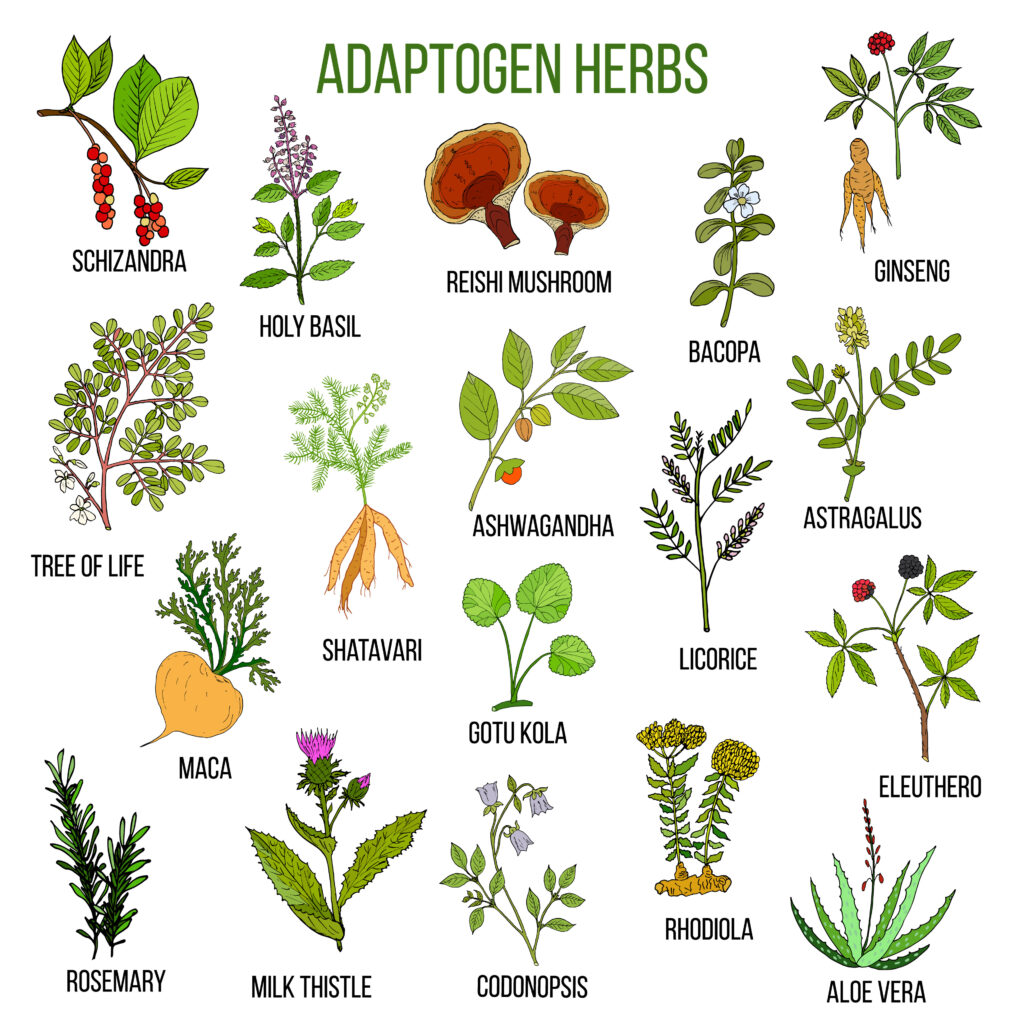
Adaptogens: How they Work
Adaptogens, long utilized by herbalists globally for centuries, remain a subject of evolving research. These natural remedies are believed to influence the hypothalamic-pituitary-adrenal (HPA) axis, a crucial system governing the body’s response to stress. They help balance stress hormone levels, such as cortisol while supporting cellular energy production and strengthening immune function. This modulation not only helps the body adapt better to stress but also promotes long-term resilience, enabling a more effective and balanced response to various stressors.
Potent Adaptogens: Top Picks and Benefits
Adaptogens share the ability to bolster the body’s resilience against various stressors—be it physical, chemical, or biological—resulting in overlapping properties. Below are some of the most popular and extensively researched adaptogens.
Reishi Mushroom (Ganoderma lucidum)
Reishi Mushroom Overview:
- Also known as Lingzhi, these fungi grow on conifer and hardwood trunks, notably in fall and as Ganoderma Oregonense in the Pacific Northwest.
Revered for over two millennia in Chinese tradition for its association with longevity and vitality.
Research Findings:
- Exhibits potent immunomodulatory effects, potentially supporting cancer treatment by replenishing specific white blood cells depleted during chemotherapy or radiotherapy.
- Recognized for potential benefits in overall well-being, including antioxidant properties for cellular health.
- Ongoing research investigates its role in heart health and managing stress-related conditions.
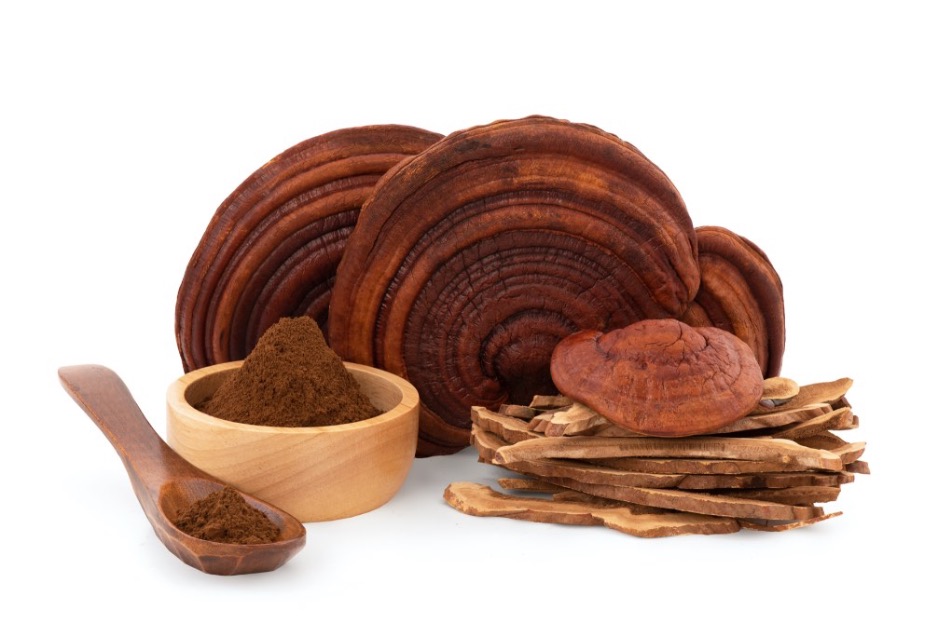
Tulsi /Holy Basil (Ocimum sanctum)
Tulsi (Holy Basil) Overview:
- Known as Holy Basil, this versatile herb can be easily grown from seeds, with its leaves dried and stored for teas.
- Revered in Ayurvedic Medicine for boosting immunity and possessing antioxidants to combat cellular stress.
- Noted for potential stress reduction and relaxation properties.
Research Findings on Tulsi (Holy Basil):
- Enhances the activity of immune cells, including T cells, B cells, and natural killer cells.
- Ongoing research explores Tulsi’s broader health potential, including anti-inflammatory, antimicrobial, and heart-protective properties.
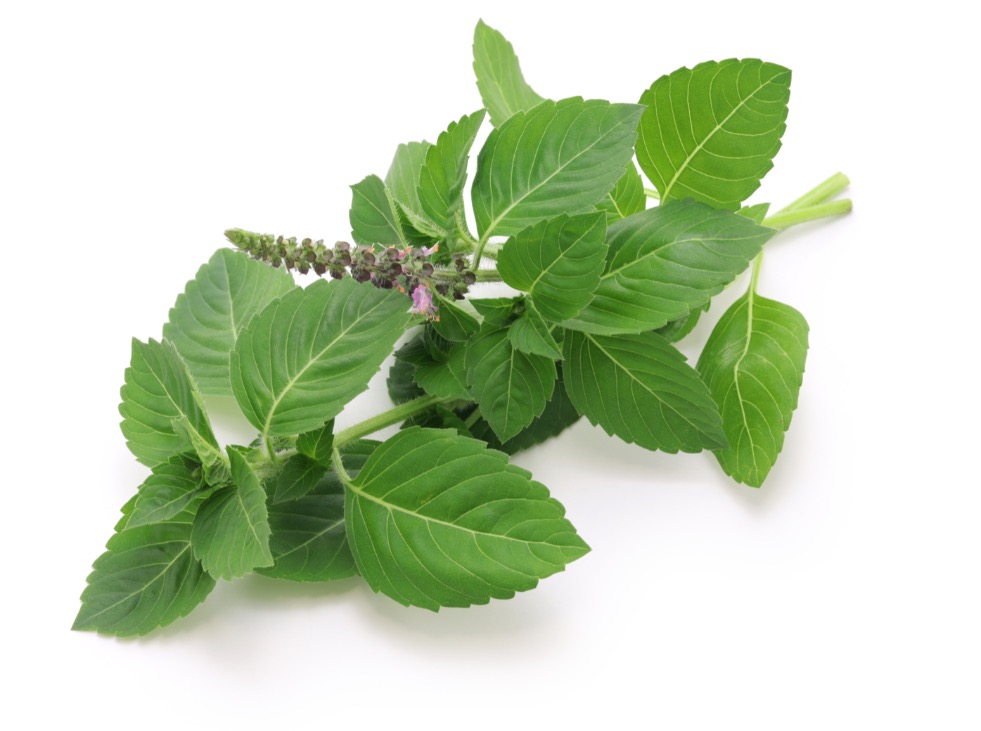
Ashwagandha (Withania somnifera)
Ashwagandha Overview:
- Derived from the root of the Withania somnifera plant, Ashwagandha, also known as winter cherry, grows as a small shrub with yellow flowers and red fruit.
- Indigenous to India and North Africa, it is revered in Ayurvedic medicine for its stress-relieving properties and promotion of relaxation.
Research Findings on Ashwagandha:
- Studies showcase Ashwagandha’s effectiveness in reducing stress and anxiety by modulating the body’s stress response.
- Demonstrated benefits in enhancing sleep quality and promoting relaxation, potentially attributed to its stress-reducing effects.
- Ongoing research suggests Ashwagandha possesses potential neuroprotective, anti-inflammatory, antimicrobial, and cardioprotective properties.
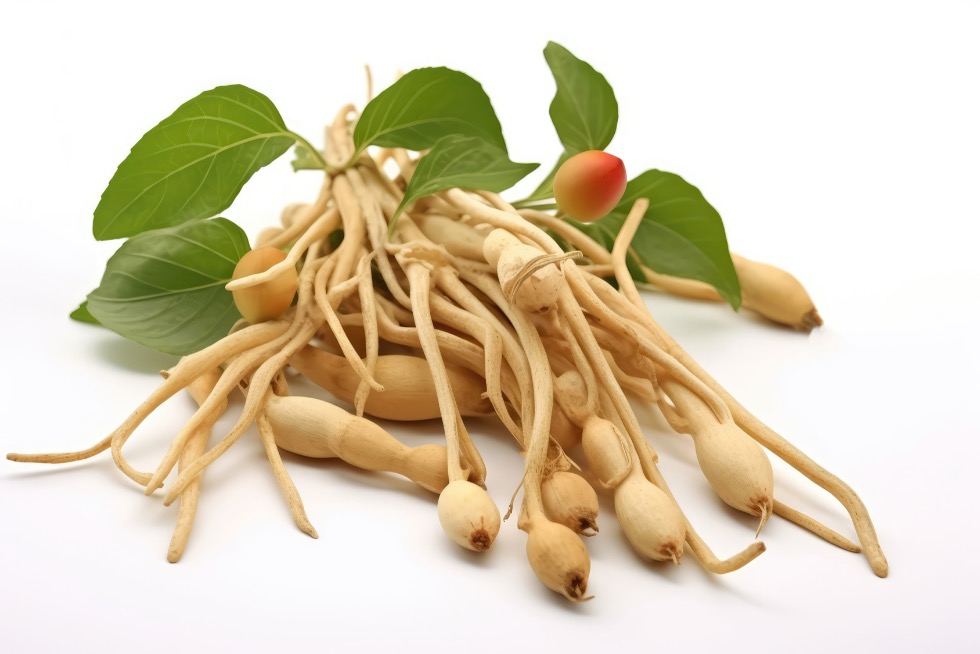
Rhodiola (Rhodiola rosea)
Rhodiola (Rhodiola rosea) Overview:
- A perennial plant thriving in high-altitude regions across the US, Canada, Europe, and parts of Asia.
- Referred to as golden root, Rhodiola’s root is renowned for its efficacy in combating physical and mental fatigue, enhancing stamina, reducing exhaustion, and boosting resilience to stress.
Research Findings on Rhodiola (Rhodiola rosea):
- Preliminary studies suggest a notable reduction in fatigue among individuals consuming Rhodiola during periods of night duty or exams.
- Demonstrated effectiveness in combatting physical and mental fatigue, potentially contributing to enhanced performance and stress resilience.
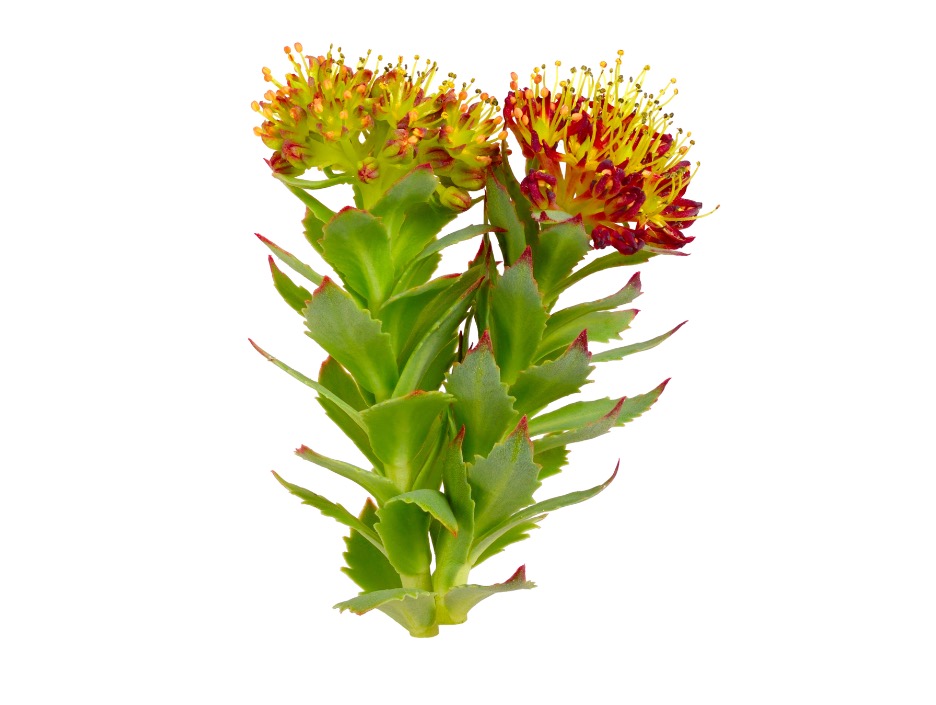
Ginseng Varieties
Overview of Ginseng Varieties:
Panax Ginseng (Panax ginseng): Grown in East Asia, Panax Ginseng is renowned in traditional Chinese Medicine for alleviating mental and physical fatigue. Its roots are known to enhance energy levels and cognitive performance during demanding tasks.
Siberian Ginseng (Eleutherococcus senticosus): Indigenous to Northeastern Asia, Siberian Ginseng, or Eleuthero, boosts immunity, increases energy, and aids mental clarity. Despite the name similarity, it belongs to a different genus but shares adaptogenic properties with Panax Ginseng.
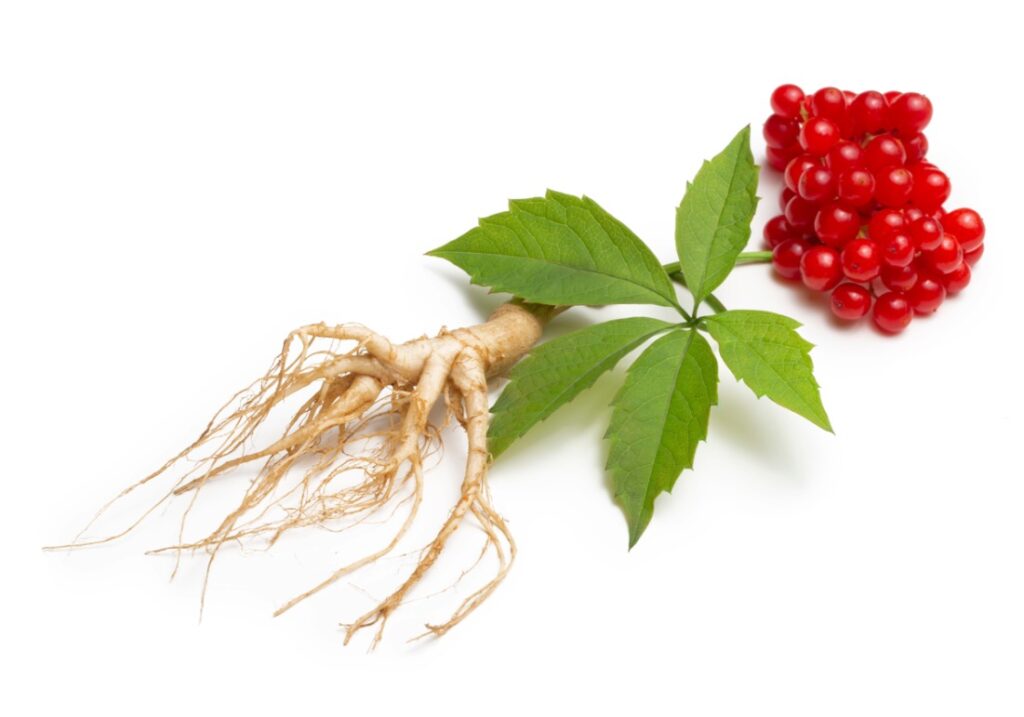
Research Findings on Ginseng:
Panax Ginseng: Clinical trials validate its efficacy in reducing fatigue, enhancing cognitive function, and boosting physical performance. It aids mental clarity and resilience during stress.
Siberian Ginseng: Studies suggest its benefits in immune enhancement, mental focus, endurance, and stress resilience. Eleuthero exhibits adaptogenic qualities, aiding in stress management and overall well-being.
Adaptogens: Methods and Dosage
Studies suggest using adaptogens for shorter periods—ideally under six months—to prevent reduced effectiveness due to resistance development. Effects can manifest within days to weeks.
Seasonal use during late fall or winter aids your body’s adjustment to reduced sunlight. Other suitable times for adaptogen use include during exams, trauma recovery, stress regulation, illness recovery, or immunity boosting.
Adaptogens are available in teas, dried roots, capsules, or tinctures. Tulsi’s adaptogenic properties reside in its leaves, allowing them to be dried and used for tea. You can purchase adaptogens in the dried root form, requiring crushing and simmering for 20 minutes to extract their properties. Capsules or tinctures offer standardized dosages.
You can purchase individual adaptogens or a blend. A personal favorite of mine is the Adapt Adapter Tea by Harmonics Art. It comprises a blend of the mentioned adaptogens and more. As it contains a mix of fresh, dried roots, it requires simmering for 20-30 minutes, and any extra can be stored in the fridge. Adaptogens can either stimulate or relax, depending on which ones you use, so consider the timing—morning or evening—for consumption.
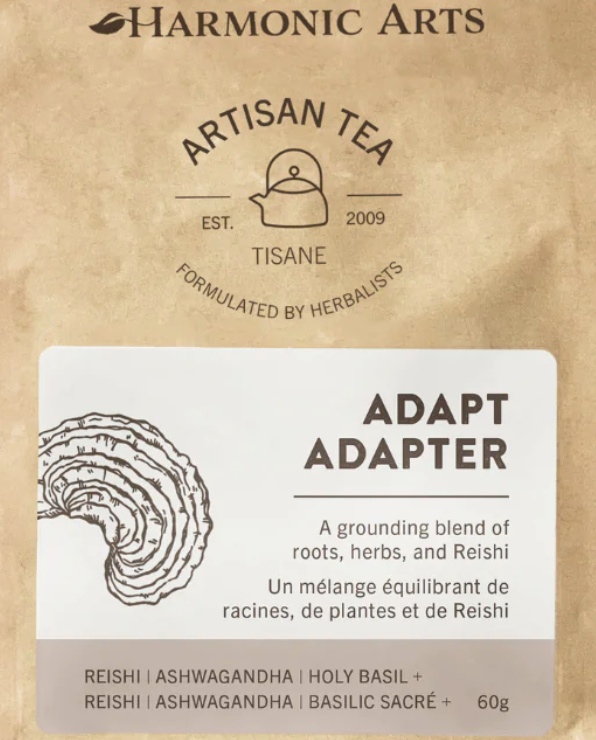
Adaptogens: Side Effects and Interactions
Adaptogens are generally very well-tolerated but may present rare side effects such as allergic reactions, abdominal pain, constipation, nausea, or diarrhea. They might interact with certain medications, impacting conditions like hypertension, diabetes, insomnia, hypothyroidism, or depression.
Putting it All Together
Adaptogens are invaluable “Go To’s” during periods of heightened stress. Alongside maintaining exercise, cultivating your destressors and strengthening supportive social bonds, consider adding adaptogens to increase your resilience. They are not a cure for your stressors, they simply help you cope with them.
While all adaptogens share overlapping health benefits and characteristics, ongoing research might incline you toward one over another. For instance, if your stress manifests as reduced immunity, consider a blend with Ashwagandha, Tulsi, Reishi, and Rhodiola. If increased anxiety, low mood, and poor sleep are your concerns, Ashwagandha, Rhodiola, and Tulsi might be beneficial. If your focus is on enhancing physical performance and combating fatigue, Rhodiola or Ginseng could be more suitable.
Opting for tablets or tinctures offers a straightforward approach to consuming adaptogens; ensure you choose a reputable manufacturer. Alternatively, the very act of foraging, growing, or preparing your own adaptogens can itself alleviate stress. Do what aligns with you and your lifestyle, let health be your guide.
References
Zhang H, Abid S, Ahn JC, et al. Characteristics of Panax ginseng Cultivars in Korea and China. Molecules. 2020;25(11):2635.
Darbinyan V, Kteyan A, Panossian A, Gabrielian E, Wikman G, Wagner H. Rhodiola rosea in stress induced fatigue–a double blind cross-over study of a standardized extract SHR-5 with a repeated low-dose regimen on the mental performance of healthy physicians during night duty. Phytomedicine. 2000;7(5):365-371.
Spasov AA, Wikman GK, Mandrikov VB, Mironova IA, Neumoin VV. A double-blind, placebo-controlled pilot study of the stimulating and adaptogenic effect of Rhodiola rosea SHR-5 extract on the fatigue of students caused by stress during an examination period with a repeated low-dose regimen. Phytomedicine. 2000;7(2):85-89.
Jin TY, Rong PQ, Liang HY, Zhang PP, Zheng GQ, Lin Y. Clinical and Preclinical Systematic Review of Panax ginseng C. A. Mey and Its Compounds for Fatigue. Front Pharmacol. 2020;11:1031.
Eleutherococcus senticosus as an adaptogen: A closer look
Pratte MA, Nanavati KB, Young V, Morley CP. An alternative treatment for anxiety: a systematic review of human trial results reported for the Ayurvedic herb ashwagandha (Withania somnifera). J Altern Complement Med. 2014;20(12):901-908.
Lopresti AL, Smith SJ, Malvi H, Kodgule R. An investigation into the stress-relieving and pharmacological actions of an ashwagandha (Withania somnifera) extract: A randomized, double-blind, placebo-controlled study. Medicine (Baltimore). 2019;98(37):e17186.
https://my.clevelandclinic.org/health/drugs/22361-adaptogens



